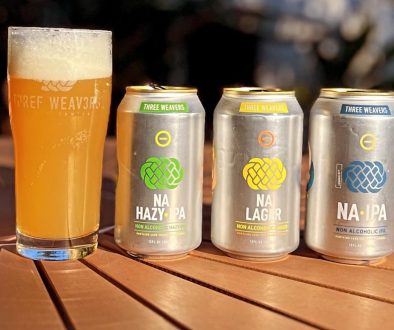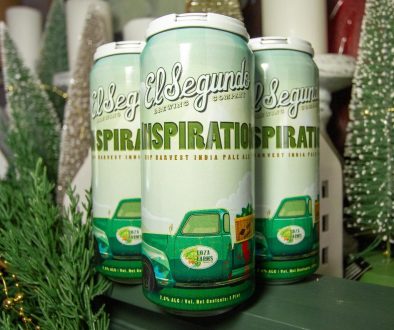Is Colorado’s Craft Beer Scene Oversaturated?
Is Colorado’s craft beer scene oversaturated? It’s a question that’s been on the tip of a lot of tongues in the Centennial State recently. With 334 craft breweries currently operating within Colorado, and nearly 200 more in the planning or construction phase, it’s easy to see why the state that ranks third in the U.S. for number of breweries per capita has been under the microscope of the craft beer industry lately. In recent years, Colorado’s craft beer scene has played out like a dramatic soap opera, with a handful of breweries shuttering their doors, others falling prey to Big Beer, and even more struggling to stand out in a place where the average beer consumer boasts an above-average knowledge of the beverage, and a noncommittal, wanderlust approach to supporting local breweries. When it comes to craft beer, is there such a thing as too many breweries? Will the relentless boom in the state’s craft beer scene bring the entire local brewing industry down? Only time will tell, but one thing is certain: Colorado brewers are keeping a close eye on the industry’s quickly-changing landscape.
Growing Pains
In 1979, a time when bland fizzy beer was still the norm, two professors at the University of Colorado in Boulder, and the future owners of the Boulder Beer Company, received the 43rd brewing license in the nation, and the first in the state of Colorado. It was a simpler time, and that blissful simplicity would last for nearly two decades before, like the mighty gold rush in the area a century before, the state experienced a massive boom, this time in the name of hop nuggets instead of gold nuggets. The 90s saw the openings of breweries like New Belgium, Left Hand Brewing Co., Avery, Great Divide, Oskar Blues and Twisted Pine Brewing Company — each brewery forging their own path and successfully establishing their brand in the emerging local beer industry before the second boom came rolling in roughly a decade later.
“It was a different time then,” said Eric Wallace, owner and co-founder of Left Hand Brewing Company. Along with co-founder and college buddy, Dick Doore, Wallace opened the doors to the Longmont-based brewery in 1994 with personal capital the duo had raised for their entrepreneurial endeavor. In a time when the craft beer industry was still getting its feet and spending most of its time working to convert and educate Budweiser drinkers, Left Hand blew up. “We had 10 years of double digit growth and we were scrambling to keep up,” said Wallace. “We used cash flow to fund our growth.”
Today, with the popularity of craft beer still at a high, investors have sunk their claws into craft beer, offering an easy beginning to inexperienced homebrewers and business owners looking to break into the industry, and an easy out for breweries facing the consequences of overextended cash flow. With new sources of funding and more accessible capital came an influx of brewery openings, and a change in the overall look of the craft beer scene. The neighborhood tasting room soon had neighboring competition, and breweries used to posting double to triple-digit growth started to see those numbers slow down.
“It’s a rapidly changing industry,” says Brian O’Connell whose brewery, Renegade Brewing Company, opened in 2011 as the ninth brewery in Denver — a city that is now home to nearly 45 craft breweries. “We’re entering more of a normal growth phase. Renegade posted 110 percent growth from 2014-2015 and we’ve posted roughly 40 percent growth in 2015 and 2016. As we become a bigger industry, it’s inevitable that the growth will slow.”
For Bob Baile, owner of Boulder-based Twisted Pine Brewing Company, keeping up with the brewery next door became a tedious and expensive game. As more breweries entered the local market, Baile witnessed big changes in the off-premise business of the industry. With more breweries came more SKUs, less space on the shelves of local liquor stores, and often times, less attention for brands from busy distributors. In response to the new troubles and challenges plaguing Colorado’s busy craft beer industry, Baile opted to halt packaging and distribution altogether in 2016 and focus on a taproom-only model.
“When we got into this, there were five of us in Boulder County, now there’s over 40. We said, why fight it all?” said Baile, whose brewery was producing 5,000 barrels a year at the time. “It turned out to be the best decision that we ever made.” From the outside, Baile’s decision to pull Twisted Pine products from the shelves and stop packaging sent up industry-wide warning flags throughout the state and beyond, but without his finances being tied up in large quantity-orders for bottles and labels, and in managing distributors and marketing Twisted Pine products in states outside of Colorado, Baile’s reaping the overall rewards of reverting back to the friendly neighborhood watering hole. “This decision eliminated a lot of headaches for us,” he said. “Now our focus is on providing the best experience and the freshest beer for our taproom visitors.”
David Vs. Goliath
While longtime breweries are adjusting to the crowded craft beer scene in Colorado, new breweries are working to find their niche in hopes of standing out. “It’s about finding a gap in the market, and finding a market in the gap,” said Zach Nichols, owner of Cellar West Artisan Ales, a young brewery and barrel house making yeast-forward farmhouse ales in the Foothills of Boulder. “I think there’s always going to be room for the neighborhood brewery that makes every style of beer, but you can only have so many of those in each neighborhood.” In 2016, Nichols joined the ranks of a growing number of Colorado craft breweries entering the state’s market with a dream, a business plan, and an understanding that competition with local breweries doesn’t always mean competition with the big dogs. “I don’t think of us as competing with big local breweries like Oskar Blues,” he said. “We’re so different.” As a new, self-funded brewery in the niche market, Nichols has focused his time and direction on staying nimble as a company. “I have no idea what the industry is going to look like in five years,” he said. “When other breweries are setting goals of growing from 20,000 barrels to 35,000 barrels a year, my goal is to be open next year.”
Is Change A Bad Thing?
Ask brewery owners, brewers and representatives of the beer industry in Colorado if they think the state’s craft beer market is oversaturated and you’ll get a mixed bag of emotions and opinions on the topic. Some will call out breweries that are in the industry for the wrong reasons. Others will speculate why local breweries are being courted, and ultimately swallowed up by conglomerates like AB InBev. Most are starting to watch their backs a little more, but hoping that the camaraderie the industry as a whole is know for will continue to define the industry they’ve chosen to dedicate their time and money to. And some recognize the unexpected benefits of a growing number of breweries opening in the state. “With more competition, breweries really have to work more for their business, which is ultimately a good thing,” said O’Connell, who’s seen local breweries become more creative and more strategic in response to the growing scene. “The competition that has come in has elevated all of us.”
So is the overall answer to the question yes? Is Colorado’s craft beer scene oversaturated?
“I don’t think it’s oversaturation at this point,” says Andreas Gil Zaldana, newly minted executive director of the Colorado Brewers Guild. “I think what we’re seeing is a deceleration of growth. People are being more strategic about where they’re opening and why.” Time will only tell of Colorado’s crowded craft beer scene will mean more closed breweries and a decline in the overall craft beer economy. But for new breweries wanting to open up shop in the state, Eric Wallace is hoping they heed this message: “Have a plan that matters, and be part of the community. Craft brewing is more than just beer, it’s a community. So if you’re just coming in to copy cat everybody because you’re hoping to get rich — you’re missing the point of this industry.”





Episode 224 - Dave Burrows Brings the Whales! | Tales From the Cask
August 18, 2017 @ 3:39 am
[…] that beer giant Constellation is buying the Funky Buddha Brewery. Next up The Full Pint asks is Colorado’s craft beer scene oversaturated? Then we close with Allpsych on the psychology of beer tasting and Imbibe Magazine exploring […]